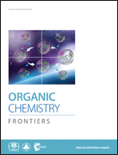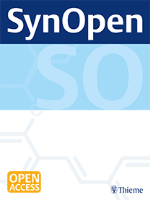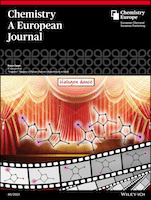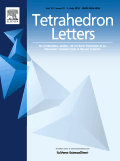
Organic Chemistry Frontiers
metrics 2024
Championing open access for transformative organic chemistry insights.
Introduction
Welcome to Organic Chemistry Frontiers, a premier academic journal published by the Royal Society of Chemistry, dedicated to advancing the field of organic chemistry. With an impressive Q1 ranking in the 2023 category of Organic Chemistry and a notable Scopus rank of 34 out of 211, this journal provides a vital platform for researchers and professionals to disseminate innovative research, cutting-edge methodologies, and comprehensive reviews. Serving as an open-access journal, Organic Chemistry Frontiers aims to enhance the visibility and accessibility of critical research findings in the organic chemistry domain, fostering collaboration and dialogue among scientists worldwide. Since its inception in 2014, it has consistently published high-quality articles that contribute to the progression of knowledge and application in organic chemistry, establishing itself as a cornerstone for students and scholars striving to deepen their understanding and drive forward their research endeavors.
Metrics 2024
 1.02
1.02 4.60
4.60 4.30
4.30 82
82Metrics History
Rank 2024
Scopus
IF (Web Of Science)
JCI (Web Of Science)
Quartile History
Similar Journals

RUSSIAN JOURNAL OF ORGANIC CHEMISTRY
Advancing the Frontiers of Organic ChemistryRUSSIAN JOURNAL OF ORGANIC CHEMISTRY, published by MAIK NAUKA/INTERPERIODICA/SPRINGER, stands as a pivotal resource in the realm of organic chemistry, catering to an audience of researchers, professionals, and students keen on the latest advancements in this dynamic field. With an ISSN of 1070-4280 and E-ISSN of 1608-3393, this journal has been a fixture in academic literature since its inception in 1996 and continues to play a significant role as it converges towards 2024. Despite currently holding a Q4 ranking in organic chemistry and a modest placement in the Scopus ranks, the journal offers valuable insights and contributions that reflect the ongoing research and trends within the discipline. Though it does not operate under an open access model, the journal provides essential studies and reviews that enhance scientific dialogue and innovation. Located in the United States, the journal supports the advancement of organic chemistry, fostering a deeper understanding of complex chemical interactions and methodologies.

CHINESE JOURNAL OF ORGANIC CHEMISTRY
Unveiling Novel Findings in Organic ChemistryThe Chinese Journal of Organic Chemistry, published by Science Press, serves as a pivotal platform for advancing the field of organic chemistry since its inception in 1996. With an ISSN of 0253-2786, this esteemed journal provides robust scientific contributions, reflecting significant advancements and novel findings that are crucial to the organic chemistry community. As of 2023, it is categorized in the Q3 quartile of organic chemistry journals, positioning it within the competitive landscape of this vibrant research area, ranking #147 out of 211 in Scopus, corresponding to a 30th percentile ranking. The journal is committed to fostering a scholarly exchange of ideas and research, making it an essential resource for researchers, professionals, and students dedicated to exploring the complexities and applications of organic compounds. The Chinese Journal of Organic Chemistry continues to support the dissemination of high-quality research that contributes to both local and global scientific endeavors.

Organics
Connecting Ideas, Inspiring Innovations in OrganicsOrganics is a peer-reviewed journal dedicated to the advancement of research in the field of organic chemistry, published by MDPI, a renowned leader in open access publication. Since its inception in 2020, the journal has embraced an open access model, ensuring that cutting-edge research is freely available to researchers, professionals, and students worldwide. With a current impact factor reflecting its relevance in the community, Organics aims to provide a platform for high-quality research, reviews, and insights that foster innovation and collaboration in the organic chemistry domain. The journal's scope encompasses a broad range of topics within organic chemistry, making it an essential resource for those involved in various research endeavors. As it converges from 2020 to 2024, Organics is set to build on its solid foundation and enhance its scholarly contributions by attracting significant research contributions that align with the latest scientific developments. Based in Basel, Switzerland, the journal's commitment to quality and accessibility resonates strongly with today's research landscape, making it a pivotal asset for anyone invested in the future of organic chemistry.

SynOpen
Connecting Researchers, Elevating DiscoveriesSynOpen is an esteemed open-access journal published by GEORG THIEME VERLAG KG, based in Germany, dedicated to advancing the fields of Biomaterials, Catalysis, Materials Science, and Organic Chemistry. Since its inception in 2017, the journal has established itself as a vital platform for researchers wishing to disseminate their findings in a rapidly evolving scientific landscape, earning a commendable Q2 ranking in Materials Science (miscellaneous) and Q3 in other key categories for 2023. With an increasing impact on its disciplines, SynOpen aims to foster interdisciplinary collaboration and innovation by providing unrestricted access to high-quality research, thus promoting a broader reach and visibility for authors. Scholars, professionals, and students alike can benefit from the comprehensive range of topics covered, as the journal's commitment to presenting cutting-edge studies and methodologies positions it as a crucial resource for contemporary scientific inquiry.

Nature Synthesis
Innovating Materials Science for a Sustainable FutureNature Synthesis, published by SpringerNature, is a premier peer-reviewed journal dedicated to advancing the field of synthesis in chemistry and materials science. With an impressive impact factor and categorized in the Q1 quartile for Chemistry (miscellaneous), Inorganic Chemistry, Materials Chemistry, and Organic Chemistry, it ranks prominently among its peers, reflecting its high-quality research output and relevance.
This journal provides a platform for researchers, professionals, and students to publish innovative synthesis methodologies, novel materials, and interdisciplinary approaches that push the boundaries of chemistry. Operating under an Open Access model, it ensures that research is widely accessible, fostering collaboration and engagement across the global scientific community.
Situated in the United Kingdom, Nature Synthesis is committed to contributing to the scientific discourse from 2022 to 2024, and beyond, as it continues to highlight significant advancements across chemistry domains.

CHEMISTRY-A EUROPEAN JOURNAL
Catalyzing Progress in the Scientific CommunityCHEMISTRY-A EUROPEAN JOURNAL is a premier academic journal published by WILEY-V C H VERLAG GMBH, specializing in the diverse fields of chemistry and catalysis, with a distinguished focus on organic chemistry. Since its inception in 1995, the journal has established itself as an authoritative resource for researchers and professionals, currently classified in Q1 in Chemistry (miscellaneous) and Organic Chemistry, reflecting its high-quality contributions to the scientific community. With an impressive impact factor and robust Scopus rankings—#33 in Organic Chemistry and #26 in Catalysis—this journal serves as a vital platform for disseminating innovative research findings and critical advancements in chemical sciences. Although not an open-access journal, it provides valuable access options for institutions, ensuring wide reach and engagement within the scientific community. As it converges into 2024, CHEMISTRY-A EUROPEAN JOURNAL remains a key resource for anyone dedicated to advancing the frontiers of chemistry research.

RUSSIAN JOURNAL OF GENERAL CHEMISTRY
Pioneering Research for Tomorrow's Chemical ChallengesThe Russian Journal of General Chemistry is a prominent scholarly publication dedicated to advancing the field of general chemistry. Published by MAIK NAUKA/INTERPERIODICA/SPRINGER, this journal contributes significantly to the global chemistry landscape, offering a platform for researchers and professionals to share their latest findings and methodologies. With an ISSN of 1070-3632 and an E-ISSN of 1608-3350, it has established itself as a resource for high-quality research articles since its inception in 1996. Though currently indexed in the Q4 category for chemistry (miscellaneous) and ranking #299 out of 408 in general chemistry according to Scopus, the journal remains an important venue for academic contributions that bridge gaps in traditional chemical disciplines. Desiring to cater to a diverse range of interests within chemistry, the journal actively encourages submissions that reflect significant scientific achievements, innovations, and collaborative studies. Although the journal does not currently offer open access, its role in disseminating crucial chemical research cannot be overstated. Researchers and students alike will find valuable insights and rigorous scientific discourse in its pages.

Chemistry of Heterocyclic Compounds
Bridging Theory and Application in Heterocyclic ResearchChemistry of Heterocyclic Compounds, a prominent journal in the field of organic chemistry published by Springer, has been a critical resource for researchers and professionals since its inception in 1965. With its ISSN 0009-3122 and E-ISSN 1573-8353, the journal aims to disseminate cutting-edge research on heterocyclic compounds, essential for advancements in pharmaceuticals, agrochemicals, and materials science. Although categorized in the Q4 quartile of Organic Chemistry as of 2023, this journal serves as an invaluable platform for emerging research, positioning itself within the 146th rank in the Scopus database out of 211 journals, highlighting its niche yet impactful contributions. The journal emphasizes rigorous peer-review and strives to cultivate a comprehensive understanding of heterocyclic chemistry through insightful articles and reviews. While not an open-access publication, it continues to engage a global audience interested in the complexities and applications of this pivotal area of organic chemistry. Scholars and students alike will find relevance in its discourse, as it fosters an environment of knowledge exchange crucial for the continual evolution of chemical sciences.

TETRAHEDRON LETTERS
Fostering Collaboration in the Chemical Sciences LandscapeTETRAHEDRON LETTERS, published by Pergamon-Elsevier Science Ltd, is a leading journal in the fields of Biochemistry, Drug Discovery, and Organic Chemistry, with a rich legacy since its inception in 1959. This prestigious journal serves as a vital resource for researchers and professionals dedicated to advancing the understanding of chemical sciences, featuring high-impact research that influences both academic and practical applications. Although it is currently classified in the third quartile across its categories for 2023, its rigorous peer-review process ensures the publication of quality research that contributes to the scientific community. With an ISSN of 0040-4039 and an E-ISSN of 1873-3581, TETRAHEDRON LETTERS is easily accessible for those in the academic landscape seeking to stay abreast of innovative developments. Researchers, professionals, and students alike will find invaluable insights and collaborative opportunities within the pages of TETRAHEDRON LETTERS, making it an essential read for anyone involved in the chemical sciences.

ChemistrySelect
Advancing the Frontiers of Chemical ResearchWelcome to ChemistrySelect, a pivotal journal in the field of chemistry published by WILEY-V C H VERLAG GMBH. With its ISSN 2365-6549, this journal aims to provide a comprehensive platform for researchers and practitioners to share significant advancements in various areas of chemistry, contributing to the ongoing dialogue and development within the scientific community. Since its inception in 2016, ChemistrySelect has focused on publishing high-quality research that spans multiple facets of the discipline, earning its place in the Q3 category for Chemistry (miscellaneous) as of 2023. While operating under a subscription model, the journal remains committed to broadening accessibility and engaging a wide audience of researchers, professionals, and students. The journal's objective is to facilitate the dissemination of groundbreaking findings through rigorous peer review, ensuring that the latest studies reflect the evolving nature of chemistry research. As we approach 2024, ChemistrySelect continues to be an invaluable resource for the academic community, positioning itself as a trusted voice in the world of chemical research.